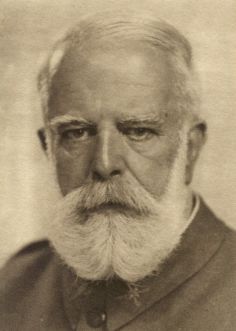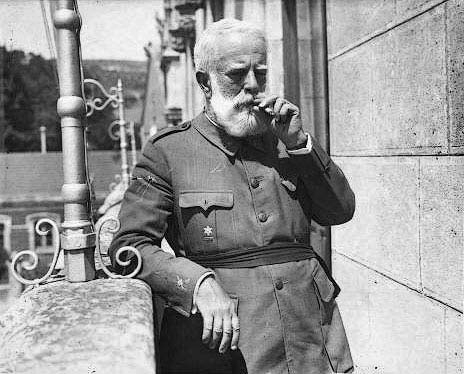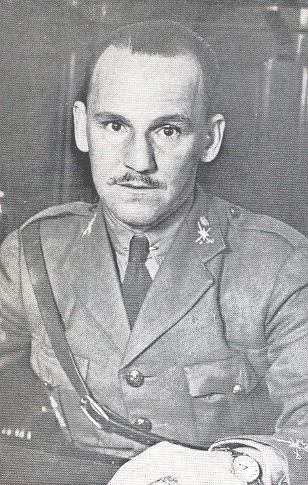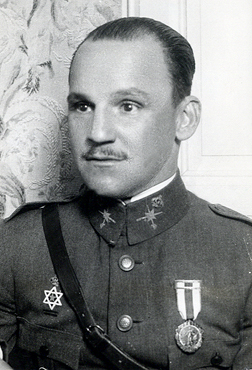<Back to Index>
- President of the Junta de Defensa Nacional Miguel Cabanellas Ferrer, 1872
- Chief of Staff of the Central Army Manuel Goded Llopis, 1882
PAGE SPONSOR


Miguel Cabanellas Ferrer (January 1, 1872, Cartagena – May 14, 1938) was a Spanish Army officer during the Spanish Civil War.
A
cavalry officer, as a major he managed the creation of the African
Regular troops (Moroccan troops in the Spanish army). In 1921 he
participated in the reconquest of the Rif after the Battle of Annual. He was promoted to brigadier general and made envoy to the island of Menorca as military governor. Miguel Primo de Rivera permitted
him to go into the reserves in 1926, which led him to participate in a
revolt frustrated in 1929. For his support of the republicans, on April
17, 1931 the provisional government of the Republic named him commander
in chief of Andalusia. Later he was named commander of the troops in Morocco and replaced José Sanjurjo in
the main directorate of the Civil Guard. In 1934 he was a delegate of
the Radical Republican Party. In July 1936 he was head of 5ª
Organic division based in Zaragoza, where on July 19 he declared his support for the Nationalists. Due to his seniority, he was president of the Junta de Defensa Nacional that on September 28, 1936 proclaimed Francisco Franco head of government and Generalissimo - though Cabanellas was the only one who dissented to this choice. He was later Chief inspector of the Army until his death.


Manuel Goded Llopis (October 15, 1882 – August 12, 1936) was a Spanish Army general who was one of the key figures in the July 1936 revolt against the Second Spanish Republic. Having unsuccessfully led an attempted insurrection in Barcelona, he was captured and executed by the Republican government. Previously, Goded had distinguished himself in the Battle of Alhucemas of the Rif War.
Manuel Goded was born in the city of San Juan, the capital of the Captaincy General of Puerto Rico, a Spanish colony. There he received his primary and secondary education. His family moved to Spain when Puerto Rico became a possession of the United States as an outcome of the Treaty of Paris of 1898 which concluded the Spanish - American War. In Spain he enrolled and was accepted in the Academy of Infantry, a military institution.
Goded graduated from the academy and was assigned to various posts. In 1907, when was 25 years old, he held the rank of Captain. In 1919, a rebellion against Spanish colonial rule took place in Spanish Morocco, a Spanish protectorate. The rebel leader in what is also known as the Rif War, was Abd-el-Krim. The Riffians, as the rebels became known, annihilated the army of Spanish General Manuel Fernández Silvestre at the Battle of Annual in 1921 and were posed to attack the Spanish enclave of Melilla. Generals Jose Millan Astray and Francisco Franco, founders of the Spanish Foreign Legion, fought against the Riifians on land and in 1925, Goded lead an amphibious landing at Alhucemas Bay (now known as Al Hoceima Bay) in what is known as the Battle of Alhucemas. This was considered as the beginning of the end of the Rif Rebellion. By 1927, the rebellion had come to an end and Spain recaptured her lost territory. Goded was promoted to Brigadier General and shortly after was named Chief of Staff of the Spanish Army of Africa.
Goded at first supported the generally rightist dictatorship of Miguel Primo de Rivera, established in 1923 with consent of King Alfonso XIII. However, Goded's eventual criticism of the government led to his removal from his post.
In May 1936, Dr. Manuel Azaña became the second and last President of the Second Spanish Republic.
Goded was named Chief of Staff of the Central Army, but was again
relieved of his position after a conflict with the government. When
rightist officers suspected of conspiring against the government were
reassigned, he was exiled to a remote post on the Balearic Islands.
When anti - leftist generals rebelled against the Popular Front government of the Second Republic in July 1936, Goded unsuccessfully led troops in the Catalonian capital Barcelona. Catalonia, being among the most industrialized regions of Spain was a stronghold of the organized left and Goded's local operations failed. He was captured by government forces on August 11 and imprisoned on the steamship Uruguay. Tried by a Republican military court and compelled to order his remaining troops, via radio, to surrender, he was condemned to die by firing squad. He was executed the following day at Montjuïc in Barcelona.
Goded's death not only decapitated the Nationalist revolt in Barcelona, and thus greater Catalonia, but removed one of the key personal and political rivals to the movement's eventual leader, Francisco Franco.